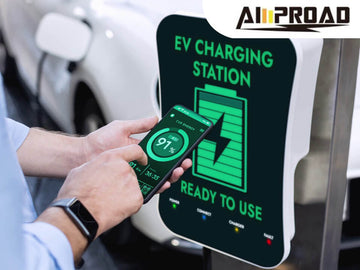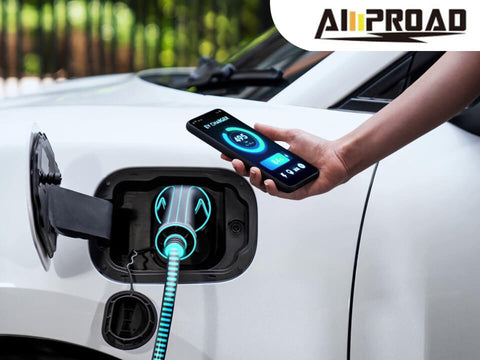
Installing an electric vehicle (EV) charger at home can significantly impact the property's value. With the rise in popularity of electric vehicles, homebuyers are increasingly considering the presence of charging infrastructure as a desirable feature. Not only does it cater to the growing number of EV owners, but it also reflects the homeowner's forward-thinking approach towards sustainability.
Studies have shown that homes with EV chargers tend to sell faster and at higher prices compared to those without. This is particularly true in areas with a high concentration of electric vehicle owners or where there is limited public charging infrastructure. Additionally, having an EV charger installed demonstrates the property's readiness for future technological advancements, making it more attractive to potential buyers looking for modern amenities. Overall, investing in an EV charger can enhance the appeal and value of your home while also contributing to a greener future.
What Factors Influence the Impact of EV Chargers on Home Value?
Several factors play a role in determining how EV chargers influence home value. One significant factor is the increasing popularity of electric vehicles (EVs). As more people switch to EVs, having a dedicated charging station at home becomes a desirable feature, potentially increasing the property's appeal to a broader pool of buyers. Additionally, the location of the home can influence the impact of EV chargers on its value. Properties in areas with a high concentration of EV owners or where EV infrastructure is well-developed may see a greater boost in value from having an EV charger installed.
Another factor is the type and quality of the EV charger installed. Homes with fast-charging Level 2 EV chargers are often perceived as more valuable than those with standard Level 1 chargers. Level 2 chargers offer faster charging times and greater convenience, making them more attractive to both current and prospective EV owners. Additionally, the aesthetics and integration of the charging station into the property can affect its impact on home value. Well-designed and professionally installed charging stations that seamlessly blend with the property's architecture and landscaping may contribute positively to its value.
Furthermore, the presence of an EV charger can signal to potential buyers that the home is modern, energy-efficient, and environmentally friendly. This perception may further enhance its marketability and appeal, potentially leading to a higher selling price. Ultimately, the impact of an EV charger on home value depends on various factors, including market demand, location, charger type, installation quality, and overall presentation of the property.

How Do EV Chargers Affect Home Sales and Property Values?
The presence of EV chargers, including Tesla destination chargers, can significantly influence home sales and property values in several ways. Firstly, as electric vehicles become more prevalent, homebuyers increasingly prioritize properties with EV charging infrastructure. Having a dedicated charging station at home can attract potential buyers who own or plan to purchase electric vehicles, expanding the pool of interested parties and potentially increasing competition for the property. This heightened demand can lead to faster sales and, in some cases, higher selling prices.
Additionally, properties equipped with EV chargers often appeal to environmentally conscious buyers who value sustainability and energy efficiency. The presence of an EV charger, especially one compatible with popular EV models like Tesla vehicles, signals that the home is equipped to support eco-friendly transportation options, aligning with the values of environmentally conscious consumers. Consequently, homes with Tesla destination chargers may be perceived as more desirable and may command a premium compared to similar properties without this feature.
Moreover, research suggests that homes with EV chargers, including Tesla destination chargers, tend to sell for higher prices than those without. Studies have shown that properties with EV charging infrastructure can fetch premiums ranging from a few thousand dollars to over $15,000, depending on various factors such as location, charger type, and market demand. This premium reflects the perceived value of the convenience and future-proofing benefits associated with EV charging stations, including Tesla destination chargers, further emphasizing the positive impact on property values.
What Types of EV Chargers Are Most Desirable to Homebuyers?
When it comes to EV chargers, Level 2 EV chargers are often the most desirable option for homebuyers. Level 2 chargers provide faster charging speeds compared to standard Level 1 chargers, making them more convenient for daily use. Homebuyers value the ability to charge their electric vehicles quickly and efficiently, especially when considering the practicality of integrating electric vehicles into their daily routines. Level 2 chargers typically offer charging speeds of around 20 to 30 miles of range per hour, depending on the specific model and power output, allowing homeowners to charge their EVs overnight or during extended periods of downtime.
Another factor that makes Level 2 EV charger desirable to homebuyers is their compatibility with a wide range of electric vehicle models. Unlike proprietary charging solutions that may be limited to specific vehicle brands, Level 2 chargers use standard connectors, such as the J1772 connector, which are compatible with most electric vehicles on the market. This versatility ensures that homeowners can easily charge their EVs regardless of the make or model, enhancing the appeal of the property to a broader audience of potential buyers.
Additionally, Level 2 EV chargers are often seen as a future-proofing investment for homeowners. As electric vehicle adoption continues to rise, having a Level 2 charger installed at home ensures that the property is equipped to meet the evolving needs of electric vehicle owners. Homebuyers recognize the long-term benefits of having an EV charging infrastructure in place, including increased convenience, potential cost savings, and enhanced property value. Therefore, homes with Level 2 chargers are perceived as more attractive and forward-thinking options in the real estate market.
Furthermore, Level 2 EV chargers may offer additional features and smart functionalities that appeal to tech-savvy homebuyers. Some Level 2 chargers come equipped with smartphone connectivity, allowing users to monitor charging sessions remotely, schedule charging times, and receive notifications when charging is complete. These advanced features enhance the user experience and contribute to the overall desirability of the property. As a result, homes with Level 2 EV chargers are often viewed as modern, efficient, and technologically advanced, further increasing their appeal to prospective buyers.

Are There Government Incentives for Installing EV Chargers at Home?
Government incentives for installing EV chargers at home vary depending on location and jurisdiction. In many countries and regions, governments offer financial incentives, tax credits, or rebates to encourage the adoption of electric vehicles and the installation of charging infrastructure. These incentives may cover a portion of the installation costs for home EV chargers or provide tax credits to offset the expense. Additionally, some municipalities offer grants or subsidies specifically for installing EV chargers, especially in areas where electric vehicle adoption is a priority for reducing greenhouse gas emissions and promoting sustainable transportation options.
One notable example of government incentives for home EV chargers is the Federal Electric Vehicle Home Charging Infrastructure Tax Credit in the United States. This tax credit allows homeowners to claim up to 30% of the cost of purchasing and installing a qualified EV charging station, with a maximum credit of $1,000. The credit applies to both Level 2 EV chargers and residential Tesla destination charger installed between January 1, 2017, and December 31, 2021. However, it's essential to check with local government agencies or energy authorities for specific incentive programs available in your area, as eligibility criteria and incentive amounts may vary.
What Considerations Should Homeowners Keep in Mind Before Installing an EV Charger?
Before installing an EV charger at home, homeowners should consider several factors to ensure a smooth and efficient charging experience. Firstly, it's crucial to assess the electrical capacity of your home and determine if it can support the installation of an EV charger. Consulting with a qualified electrician can help you evaluate your home's electrical system and identify any necessary upgrades or modifications to accommodate the charger.
Secondly, homeowners should choose the right type of EV charger based on their vehicle's charging requirements and their budget. Level 2 EV chargers are the most common choice for residential charging, offering faster charging speeds compared to Level 1 chargers. Additionally, homeowners may want to consider features such as smart charging capabilities, Wi-Fi connectivity, and compatibility with their vehicle model.
Another important consideration is the location of the EV charger installation. Ideally, the charger should be installed in a convenient and accessible location near where the vehicle is parked. It's essential to ensure that the installation complies with local building codes and regulations and that the charger is protected from environmental factors such as rain, snow, and extreme temperatures.
Furthermore, homeowners should research available incentives and rebates for EV charger installations in their area. Many governments and utility companies offer financial incentives, tax credits, or rebates to encourage the adoption of electric vehicles and the installation of charging infrastructure. Taking advantage of these incentives can help offset the upfront costs of installing an EV charger and make the investment more financially feasible.
Overall, homeowners should carefully assess their home's electrical capacity, choose the right type of EV charger, select a suitable location for installation, and explore available incentives before proceeding with the installation of an EV charger. By considering these factors, homeowners can ensure a successful and cost-effective EV charging solution that meets their needs and preferences.


